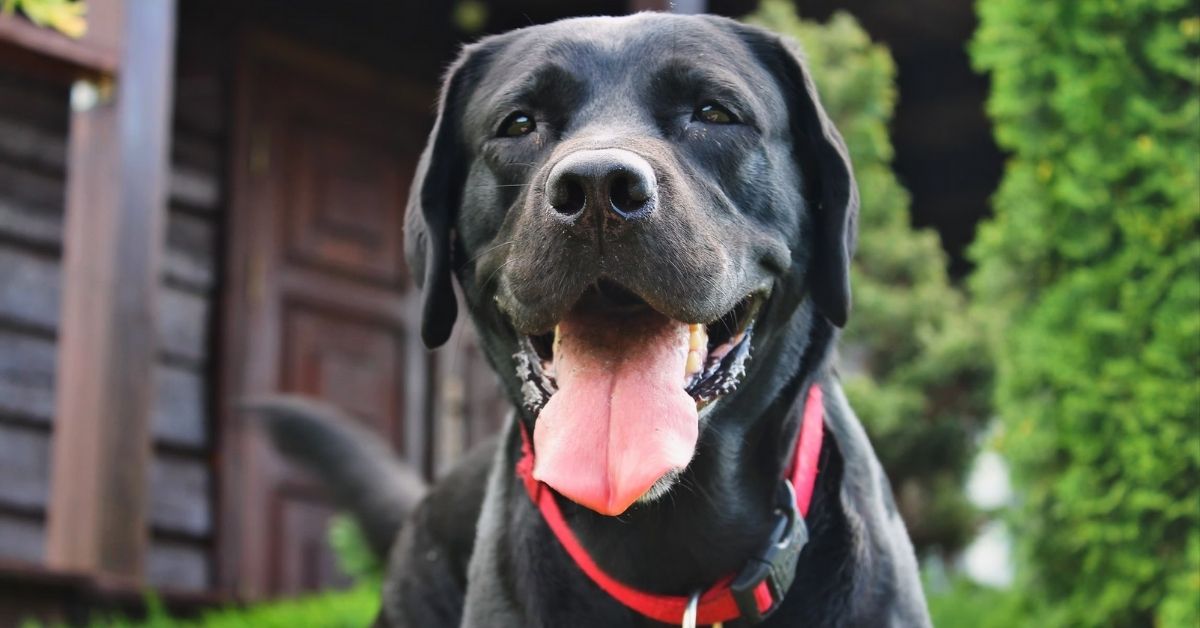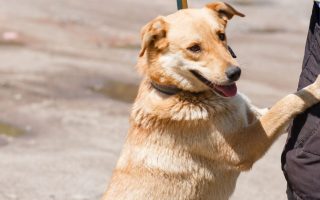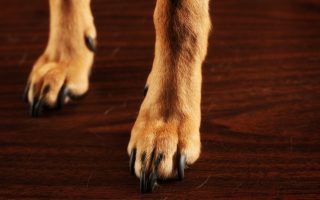So you’ve adopted your first dog – a Labrador Retriever!
You’ve covered all your bases and braced yourself for a year of craziness, training, and puppyhood.
But that year passes, and another and another, and your lab is still bouncing off the wall.
So what gives? When do Labs calm down?!?!
Many people adopt Labs because of their excellent disposition, amazing personality, trainability, and companionship.
It’s important to remember that a dog’s first year of life is full of excess energy and excitement. It doesn’t end once the dog turns one!
But fear not. Like all breeds, your lab will calm down.
Read on to find out what to expect and how to manage and enjoy these high-energy years with your pup.
When Will My Lab Calm Down?
No two dogs are the same, but on average most Labradors calm down between the ages of 2-4 years old.
Like all dogs, Labs go through a few different stages of maturity before they grow out of their puppy energy.
Unlike some other breeds, Labrador’s have longer stages as a puppy and adolescent than you may expect.
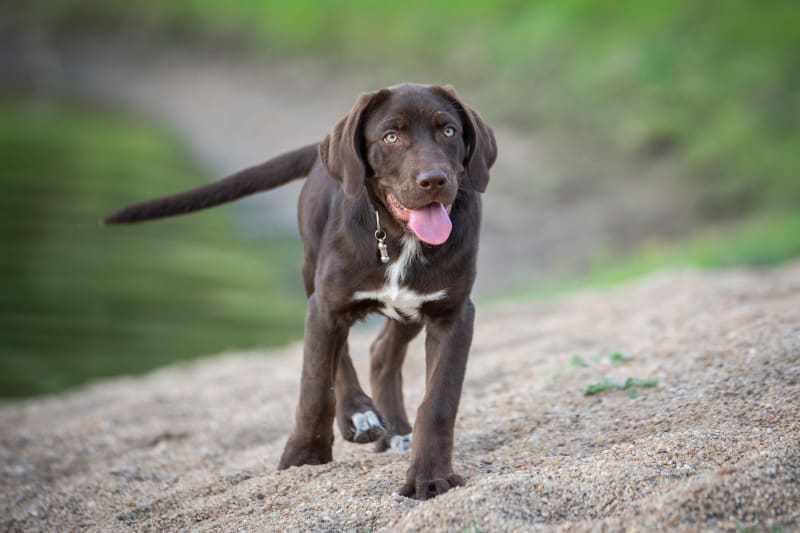
Are Labs High Energy Dogs?
This is a question with many answers. Labs are popular dogs for a reason…
They are friendly, inquisitive, curious, and love to work.
Yet, it’s many of these same characteristics that may have your dog bouncing off the walls.
Labradors often exhibit an intense level of intelligence and a deep desire to please. It’s important to provide them with tasks that challenge their intellect and will keep them engaged.
When they become bored they will often look for ways to entertain themselves. This includes chewing furniture, digging holes in your yard, and barking like a maniac.
Related:
Labradors love social interaction!
If your Lab is spending too much time alone it will be easy for their energetic personalities to kick in.
Long story short, Labs have a long list of great traits, but “calm” is not one of them.
This won’t last forever, and there are many things you can do to manage your dog’s disposition in the first few years.
Lab Puppy Behavior Stages
Puppyhood
This period of a dog’s life is often called the juvenile stage. It lasts about 6 months according to most people’s timeline of “having a puppy”.
You can expect your Lab puppy to be high-strung.
They will be developing, pushing limits and seeking guidance from you.
Which makes this the perfect time to train your Labrador.
You must take the time to put in place a structure that will allow you to manage your dog as they mature.
Habits and rules taught in this stage are likely to last a lifetime. You will have an easier time managing your Lab if good training is stressed from the beginning.
Also Read:
Labrador Adolescence
This stage is what it sounds like – your dog is a teenager.
This period of development lasts from 6 to 18 months and may last up to the 2-year mark in some dogs.
You may feel as though your Lab is an adult but don’t be fooled.
During adolescence Labradors have reached their final size and have filled out. Although their outward appearance does little to reflect their internal and mental development.
It’s during this time you will begin to see if your early training has been effective – fingers (and paws) crossed!
If it has paid off your Lab pup – I mean teen – may be well behaved.
Keep in mind that dogs in this stage are still mentally close to puppyhood.
This can result in chaotic moments from time to time.
Occasional bouts of craziness with your Lab, up to two years, are normal, and are a reflection of their stage of life.
Continued work and training are important. The good news is that your dog will not be stuck in these early stages of development.
Young Adulthood – Adulthood
Past the ages of 18 months to two years, you can expect to see a notable reduction in chaos in your Lab.
Past 36 months, most dog’s energy will level off.
This is when you will see the highest payoff in your early investments in training your Lab.
Adult dogs are less likely to test established boundaries than when they were puppies.
But this doesn’t mean you should expect a docile dog either.
Likely to be calmer in the home, Labradors are a breed that requires regular exercise.
You can expect your pup to race around the dog park for years to come.
This is part of what makes a Labrador great for families on the go or active individuals.
How to Manage a Dog with High Energy Levels?
It’s one thing to know that your Lab will calm down. But it’s another task figuring out how to handle all the chaos while you’re waiting for that day to come.
Luckily, there are a handful of effective things you can do to manage your dog’s disposition.
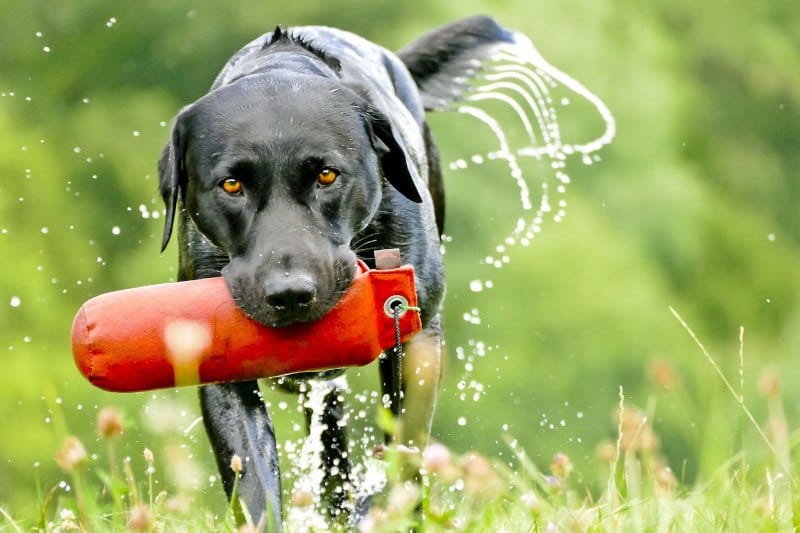
Avoid Boredom
I’m sure you know this but it is worth mentioning…
Your Lab is a working dog with high intelligence and a desire to please.
Left unstimulated, your pup is likely to tear through your home, doing some damage in the process.
To prevent this, you shouldn’t allow a young Labrador to get bored.
Plenty of exercise, toys, socialization or even a game will help keep your dog occupied and happy.
If your family goes to the lake, bring him/her along.
If you love to hike, your pup will make a great companion.
If you’re a hunting aficionado, consider training your Lab to help out.
All these activities will appeal to a Lab’s instincts to run and learn. In turn, it will allow you to keep your home intact.
You Might Also Like:
Proper Training
Obedience training is important in all breeds. But is crucial in larger dogs like Labradors with lots of energy and high intelligence.
Physical exercise is one part of the equation when it comes to a happy Lab.
Training also provides mental stimulation and teaches your dog manners. This can help to bring your dog under control in many situations.
It is the best antidote to destructive behavior and anti-social tendencies.
The sooner you begin training your Labrador Retriever the better.
Watch This Video: High Energy Labrador Dog Training Before & After (6:34)
It’s important to be consistent with your training sessions.
Set aside time every day to work on basic commands and reward positive behavior.
This will set the tone for years to come and will make calming your Lab manageable.
Curb Bad Habits
Every dog is different, but most are likely to present unwanted behavior early in life.
High energy breeds such as Labs have hyperactive behavior that need to be addressed, such as chewing, barking, and jumping.
If you don’t get a handle on it, this destructive behavior will worsen over time. This makes it harder to prevent or reverse when your Labrador reaches adolescence and adulthood.
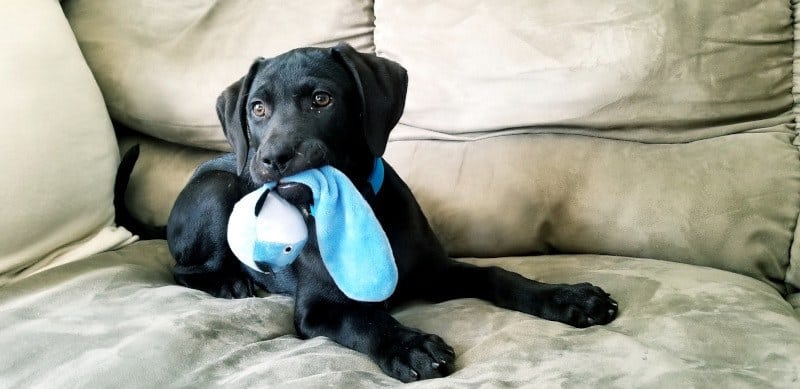
If you see your pup chewing, invest in safe alternatives like bones or other safe chew toys.
If you observe excessive barking, try not to reinforce or reward the behavior.
Labrador Retrievers are eager to please and receptive to positive reinforcement.
This is why rewarding your Lab when they exhibit desired behaviors helps their brain develop.
Don’t Meet Chaos With Chaos
When you bring home a new Lab puppy, it can be easy to meet the energy of your new furry friend where they’re at.
But, meeting excitement with excitement in areas like the home, or in public, can reaffirm hectic behavior where it is not appropriate.
Instead, try to ignore or discourage over-excitement in areas where it could be a problem.
Labs, and all dogs, are receptive to the moods and behaviors of their owners.
Getting worked up and encouraging roughhousing with your puppy will send the wrong message and can be hard for your pup to unlearn.
No Puppy Is Perfect
It’s important to show patience with your Labrador in the first few years of their life.
They experience longer periods of early development than some other breeds of their size and are always learning.
A dog that may behave one day could be jumping and racing around the next.
Frustration is common, but allowing that frustration to get in the way of enjoying time with your Lab is silly.
Instead of punishing your Lab for acting out, continue to reward them for showing appropriate calm behavior.
These episodes of chaos will continue to lessen as they age and will become rare occurrences.
The Good News? The Craziness Won’t Last Forever!!
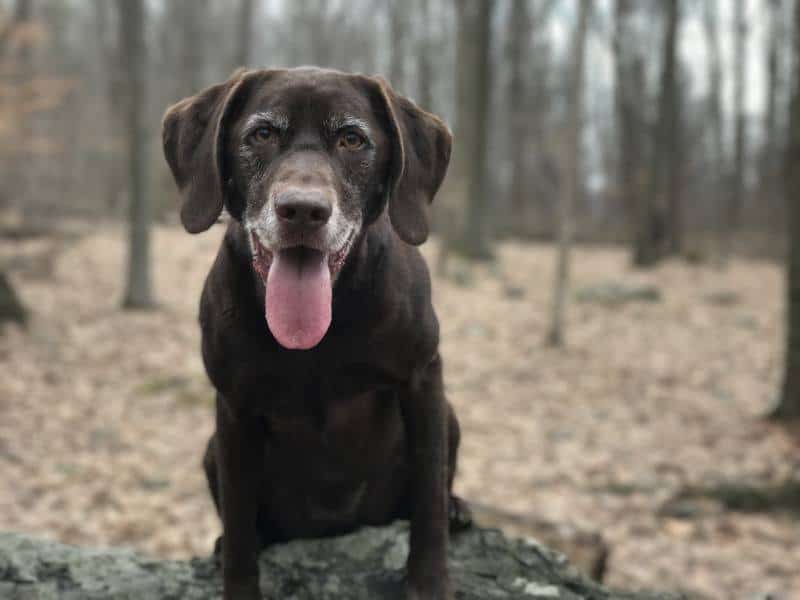
If you’re worried your Lab may never calm down, you can take some relief from knowing this isn’t true.
Their long early development, paired with high energy can make the first few years of life with your new pup a little crazy.
Hang in there, this will begin to wane over time.
In the meantime, it’s important to do what you can to prevent boredom by providing mental and physical stimulation your Lab craves.
The best recipe for success is to give them lots of exercise, consistent training, and a gentle way to control bad behavior.
Life with your Lab can be crazy and challenging, but also rewarding.
The love, loyalty, and companionship provided by a Labrador is incredible and makes every chaotic moment worth it!

